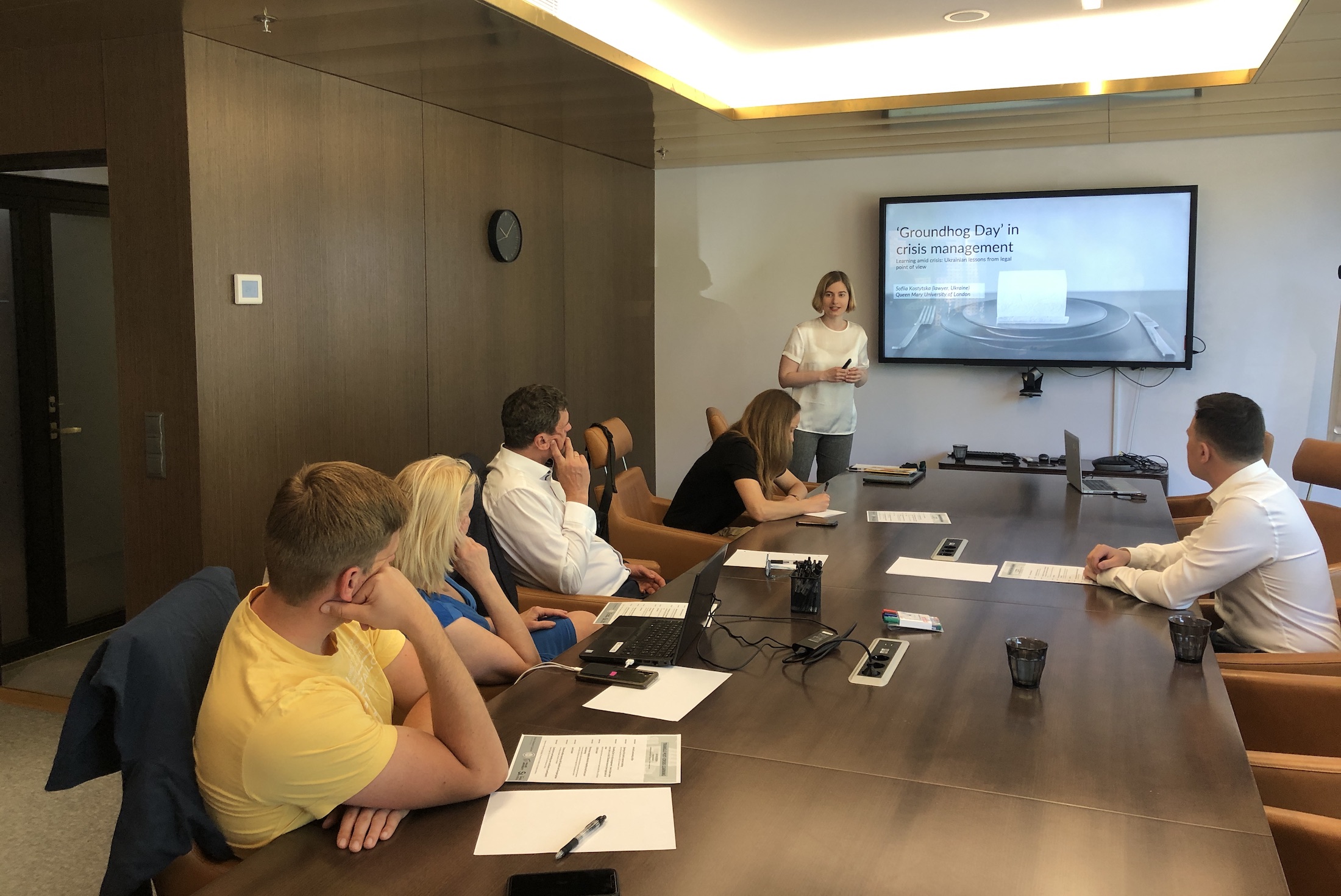
SEMINAR | Groundhog Day in crisis management or how to adapt when every day is a crisis?
At the final seminar of the TPCL project on post-crisis learning of the NGO Crisis Research Centre, Malmö University (Sweden), and the NGO Youth Supreme Council (Georgia), Sofiia Kostytska (Ukraine) presented on adapting the Ukrainian legal framework and innovative approaches to coping with the full-scale Russian invasion.
The concluding session at the Öpiku Conference Centre in Ülemiste City was inspired by the film “Groundhog Day,” in which the protagonist is locked in the same day with no option to escape reality. As depicted in the film, Ukrainian society has been coping with a new reality marked by conflict for the past two years, doing it as effectively as possible despite the tough conditions.
“There are numerous examples in Ukraine of how society and the state have had to change rapidly in order to function. Good examples are the network of points of invincibility, the conversion of railroad rolling stock for medical evacuation and transportation, and the empowering of communities in a variety of applications, such as alerting the state of detected enemy soldiers via official channels,” stated Sofiia Kostytska. “No less significant are the legislative reforms, which, by the way, have to be implemented rapidly. For example, in the early stages of the war, a rule was established prohibiting the publication of sensitive information on social media, such as Ukrainian troop locations,” she noted. Kostytska also emphasized the importance of being prepared for change, particularly in the midst of a long-running crisis that not only disrupts stability but is also in constant motion.
The last session was attended by crisis preparedness experts from Estonia’s municipalities of Saaremaa and Hiiumaa, as well as personnel from the Kärdla Rescue Depot. Participants agreed that learning from the Ukrainian experience is vital. “Ukraine has demonstrated what it takes for a society to be resilient in the long run during a significant crisis. International assistance has been extremely beneficial in this regard, and it is critical that we continue to support Ukraine on a national and individual basis. This resilience is at least partly due to the sense that Ukraine is not alone and that the country will continue to be supported,” said Hannes Nagel, Head of the NGO Crisis Studies Centre.
Malmö University is the lead partner in the TPCL (Triangle Post-Crisis Learning) project, which operates till the end of 2024. The project is funded by the Swedish Institute. Sofiia Kostytska’s presentation and stay in Estonia were sponsored by the National Foundation of Civil Society.
Jaga postitust:
